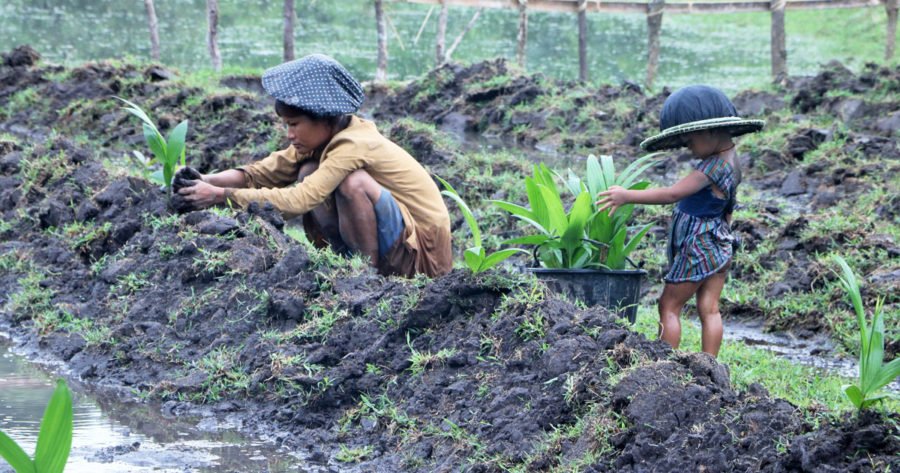As Myanmar is remerging from decades of economic and political isolation, it has become one of the fastest growing economies of the world, striving for inclusive growth and poverty reduction. As more and more foreign investors are entering the market, the transition from agriculture based to a more goods producing and service orientated economy slowly appears.
Myanmar, however, faces a number of signi cant challengers. While the country must achieve and maintain macroeconomic stability it must also lead the progress of a fragile peace and reconciliation process. To increase social and economic development, the country must tackle substantive infrastructure and human resource deficits.
The Enhanced Livelihoods for Displace People Project (ELDP) Consortium commissioned a labour market survey at the end of 2016, with the aim to provide adequate information regarding the labour market of 3 townships (Dawei, Thay- etchaung, Palaw) in the Tanintharyi Region with a focus on Internally Displaced Karen People. Furthermore, the ndings of the survey helped identifying potential vocational train- ing courses for the Karen Vocational Training Center (KVTC), which will be established as part of the 3- year Livelihoods and Food Security Trust Fund (LIFT) funded project.
The Tanintharyi Region, located in the deep south of the country, is historically heavily weighted on the agricultural and shery sector. Due to government policy aimed at rapid expansion, large palm oil and rubber plantations were plant- ed along the coastline commencing at the end of the 1990’s, with little regard to land occupation by local populations, land suitability, conservation of forest reserves, water sources or endangered species. While the region has enormous eco- nomic potential, it is hampered by lack of infrastructure, suf- cient power supply and a well functioning nancial market. In addition, the construction of the Dawei Special Economic Zone and related infrastructure projects have been stalled since 2013 and it remains unclear if and when the project and related actvities will restart.
The labor market of the Tanintharyi Region can be considered as underdeveloped. Thou the unemployment rate is considered low, more then 80% of the labor force in the region is self-employed. The income situation is comparatively low, the more so as the income situation heavily depends on the agricultural harvest and lean season. During the harvest time the demand for unskilled workers is quite high, while during the lean season most of the people living in rural areas lack su cient income opportunities.
Many Karen people in the Tanintharyi Region face challenges due to the decades old armed-con ict between the Myan- mar Government and the Karen National Union. The resulting displacement has also had an impact on Karen Internally Displaced Peoples’ access to education and skills development and their overall participation in the local economy. Many have migrated to Thailand and other countries where their safety and welfare is also not ensured.
The labour market survey revealed that basic personal skills, which are eminent for a well functioning labor market, are not present. According to the study, 11% consider them- selves as being illiterate, only 2% have basic computer skills. The absent of personal motivation by especially young peo- ple is alarming. According to the survey results, 15% of inter- viewees had previously migrated to other countries (mainly Thailand) to seek better job opportunities. However, only 6% indicated that they have currently plans to leave the region to seek better job opportunities. Most of the people are con- dent that the economic situation of the region will improve in the short term.
Only 15% of the survey participants indicated that they had received some sort of short-term vocational training in the past, mostly provided by the private sector. Current TVET opportunities in the Tanintharyi Region remain limited, especial- ly for Karen IDPs, as inherent barriers to participation exist.
Interviewed local business owners have expressed their de- sire to extend their business model, looking for skilled workers to employ. Thou there are many challenges ahead, most of them are con dent, that the overall economical situation of the region will continue to improve during the next few years.
The demand for vocational training courses that are situated in the secondary or tertiary sector is high. Vocational training courses, such as masonry, carpentry, sewing and hospitality are in great need and should be supplemented by short-term trainings, such as English, computer courses and entrepre- neurship. Such trainings will enable Karen people to become more- semi-skilled and skilled workers with higher incomes than unskilled workers and will enable them to participate in the growing local economy.
| Labor Market Survey 2017 | 2.41 MB | Download |
